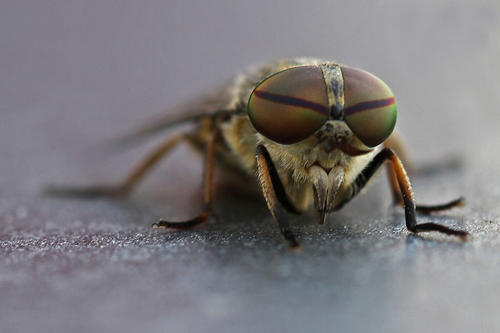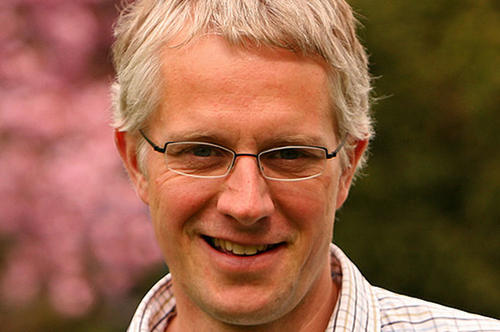Learning from Insects
Evolutionary biologist Jens Rolff draws inspiration from nature in his research
Aug 13, 2012
Insects produce antimicrobial peptides whose substance is similar to the antibiotics used in medicine.
Image Credit: bagal / pixelio.de
The evolutionary biologist Jens Rolff gets many ideas for his research from nature.
Image Credit: Privat
It all started, Rolff explains, with the idea that with their rich species diversity, insects were the most successful class of animals of all, so they must have effective defense mechanisms to deal with disease. And in fact, insects do produce antimicrobial peptides whose substance is similar to the antibiotics used in medicine.
At the same time, the tiny animals produce multiple substances at once. This is because while a single “insect antibiotic” gives rise to resistant bacteria after about two weeks of evolution in a lab setting, the substances are much more resistant when combined. “By observing in the lab how successfully the various antimicrobial peptides in insects interact with each other, we humans can draw inspiration from nature,” the professor says with an eye to human medicine.
When Rolff wants to explain what he finds so thrilling about evolutionary biology, he quotes the American geneticist and evolutionary biologist Theodosius Dobzhansky, who said “Nothing in biology makes sense except in the light of evolution.” With this as background, there was only one choice for Rolff: fundamental research.
After completing his doctorate at Technische Universität Braunschweig, the young researcher moved to the UK – the country that leads the world in evolution research. The institute in Sheffield is among the top ten in the discipline. In Germany, by contrast, evolutionary biology was still just a niche discipline at the time.
Two factors drew the researcher back to the German capital: the better general quality of life available in Germany, and the fact that, as he says, the research landscape has developed successfully and become significantly more interesting. Among other things, his role as part of a panel of experts operated by the German Research Foundation (DFG) offers him many possible contacts within Germany’s burgeoning evolutionary biology community. Rolff also mentions that Berlin has become a tolerant, cosmopolitan city. He shudders to recall the 1990s, when the Cold War was still everywhere in evidence in the city.
The professor does miss a few things about England, though. He especially enjoyed the casual manner in which people in the UK deal with each other. “We in Germany could certainly learn a lot from the flat hierarchies you see in Britain.” In England, what counts is not a person’s title or age, but rather what that person can really do. Back in Germany, Rolff is still readjusting to the more formal tone.


